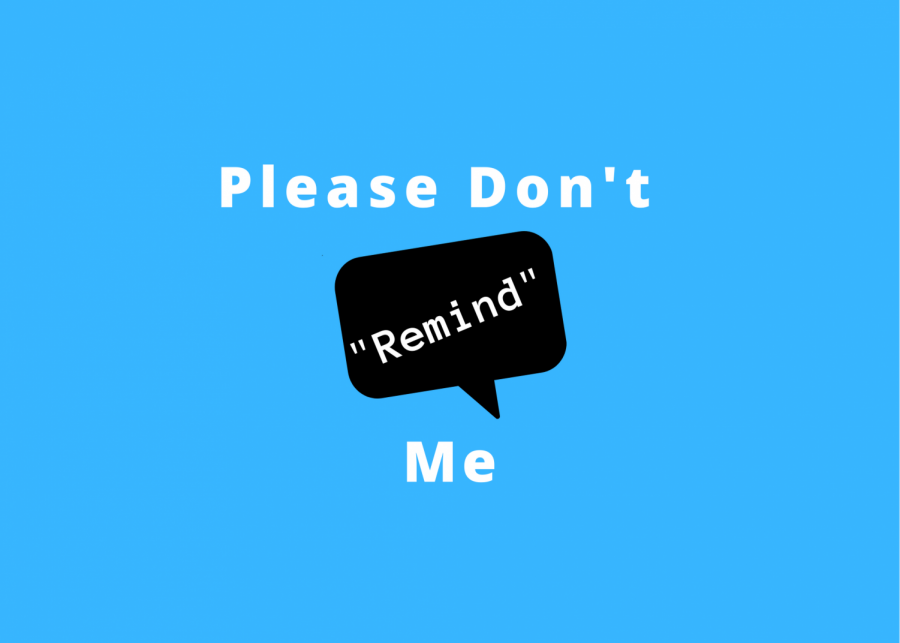Please Don’t “Remind” Me
My phone doesn’t ping – I’ve set it to mute, because of the constant alerts – but it does flash, lighting up on the couch beside me to remind me of the economics test. The text pops up among others like it, snuggled with reminds for AP classes. It’s a Wednesday evening, and I’m studying for the test it tells me about.
Flash forward two weeks later, and it’s a Sunday evening. Five minutes ago I got off work, having blessedly managed to complete homework while the store was quiet. My notifications are crammed with texts and Twitter notifications, but the messages float to the top – an AP teacher has assigned homework. I go home and joke to my parents that my teacher has a special ability: assigning homework minutes after I’m off work, where most days I hover around the store, bored when business is slow, having already completed the rest of my homework in the empty time between customers. This is a part of my routine now. But it doesn’t mean it’s not frustrating.
Remind is a communication app and platform, meant to keep students connected in their community, but for students nowadays it is often pushed on them to download and be subscribed to, becoming a necessity to keep them up-to-date with their classes and deadlines. I don’t have the Remind app, but I do get texts when my teachers send a message to the class, which is often. It is the sort of update that would be very convenient for students in core classes, where planning in advance and keeping on top of things isn’t as prevalent to students as it is in AP classes. However, it seems to be the AP students that it disadvantages the most, and not just because of the entourage of texts that we receive.
There aren’t many students who don’t have phones in this day and age, but Jason Roettger is one of them. He’s also an AP student, enrolled in five AP classes, and one who struggles with not receiving homework texts in his classes.
“Certain teachers tend to assign assignments – or drastically change existing assignments – not very long before the due dates for said assignment, without extension of due dates,” said Roettger. “Teachers change assignments without warning, [through Remind].”
Roettger has had a phone in the past, but got rid of it due to misuse, and has no plan to get another. However, as three of his AP classes depend on Remind, he has struggled to get the correct work done.
“[Not having easy access to Remind] causes me sometimes to not do the correct assignment, because the assignment was changed,” he said. He is able to access the Remind app on the school distributed Chromebook, but it doesn’t ping notifications as a phone would.
“It is something I would have to constantly check if I wanted to make sure that I got all the assignments correct,” Roettger affirms.
“I view [Remind] as a tool,” he said. “Right now, I view it as a way for teachers to assign extra assignments or change existing assignments after their class has ended. I wish that teachers would – at the very least – ask if everyone had easy access to Remind, or using it in that manner, but I think it could be a good tool if used correctly.”
Assignments change over text, hours after class ends, and the students are left in a scramble trying to adhere to a changing guideline. For high-pressure courses, the texts tend to add to the anxiety. Obviously Remind has its highlights, often when it is used as according to its purpose as reminder app – I find it very useful to keep up with club meetings, and the AP teachers that distributed positive messages before AP exams were a highlight – but it can still be used to create a frustrating cycle that defines the lives of 21st-century students. After all, we live in a digital era, and that has digital consequences.
Sydney Haulenbeek is a senior and a fourth-year writer for The Treaty. When she's at school, photography, yearbook, Montage, and senior class consume her...













